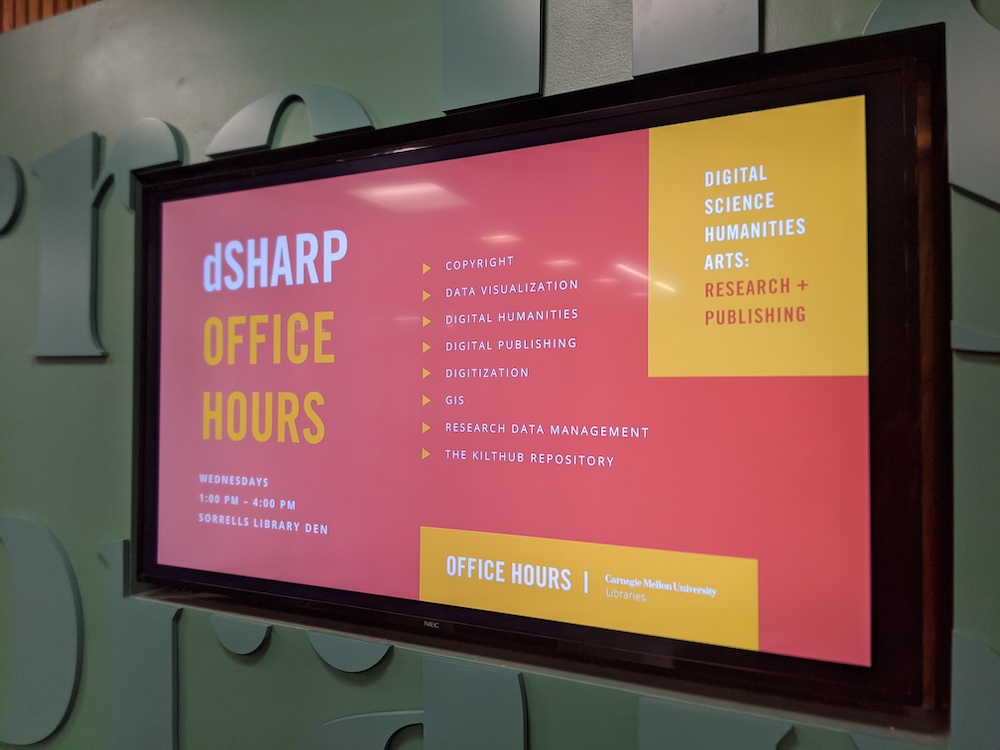Technical Teaching at CMU
My DH work at CMU isn’t limited to programming - I do, on occasion, teach and consult outside of long-term faculty projects.
One way this happens is through weekly office hours held by dSHARP, a group of CMU Libraries faculty and staff committed to fostering the digital scholarship community across the University through events and teaching. Every Wednesday afternoon, we get together in “the Den” in Sorrels Library where we co-work and field drop-in questions from anyone in the Pittsburgh community who wants to come chat. The questions can be anything from how to find the command line on their computer, to setting up Git or R, or bigger-picture discussions about text analysis or mapping demographic data, you name it. These regular office hours have been a good place to channel the occasional requests for help that come my way - it would be impossible to carry out the actual projects I’m responsible for if I scheduled one-on-one consults with everyone who made inquiries (not really something I want to do, anyway.) But having a dedicated time and place for them where I can also introduce people to colleagues in digital publishing and open science has been an ideal way to balance my primary work with the broader mission of working at a university library.

The dSHARP sign outside of Sorrells Library
My other teaching has been in the form of short but intensive workshops.
- With David Brown (CMU English), I co-taught a three-course series on text analysis in R, which was a great experience for me as I got much more familiar with the
Corpusobject system used by quanteda than I ever would have without needing to teach it. We have posted the materials and data onto GitHub, including a link to a Binder that will let you load up the entirely environment in your browser without needing to install R at all. I’m not sure if I’d do it the same way again next time - it might be more useful to students to do live-coding rather than prepared workbooks. - Since the start of the Andrew W. Mellon Digital Humanities Seed Grant at CMU, Scott Weingart has been hosting an annual summer workshop to introduce new humanities grad students to the fundamentals of DH. I had the pleasure of talking about creating tidy humanities data as well as chatting in an open forum about DH/alt-ac career paths.
- This summer I also got to participate in a Getty-funded workshop jointly hosted by CMU (Scott Weingart) and by the University of Pittsburgh (Alison Langmead) along with Anne Helmreich. The first phase of a multi-year program, this advanced workshop in network analysis and digital art history brought together collaborative teams of art historians and technologists, rather than solo scholars, in an effort to galvanize research projects that would grow to be self-supporting after the initial meeting. I talked about uncertainty in data, as well as what parts of Linked Open Data should matter to art historians, and what parts they can ignore.
- While visiting Princeton to give a talk on my research in historical art auction catalogs, I had a chance to give a workshop on Palladio, one of my favorite introductory tools to teach to art historians because it features both maps and networks in one package. I’m really happy with the dataset I’ve put together for it (an extract from the Knoedler collection at the Getty) because its filled with teachable moments about the complexity of encoding data from archival material.
